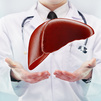Yes, according to studies, too many carbs can indeed lead to fatty liver disease, while a low-carb diet can help reduce liver fat. A carb-restricted diet may improve liver fat metabolism, decrease inflammation, improve weight loss, and balance blood sugar. However, it does not mean at all that you should remove all types of carbs from your diet. It is important to differentiate the good (complex) carbs from unhealthy (simple) carbs. Unlike simple carbs which are just sugars, complex carbs contain more fiber, vitamins, and minerals. They may help you fight liver disease, feel full longer, improve digestion, and provide energy. Complex carbs can be found in nuts, quinoa, or brown rice while the most common refined sources of simple carbs are soda, breakfast cereals, sweets, and juice concentrates.
Our dietary habits and behaviors can increase the risk of developing fatty liver disease, according to the latest studies. How and when you eat is as important as what you eat. Some of the inappropriate patterns of food intake include:

Discover the first nutrition bars designed to support liver health.
Read more >Studies show that frequent meals and bedtime snacks may improve energy, malnutrition, glucose intolerance, and amino acid imbalance which are often prevalent in liver disease patients. A bedtime snack regime can reduce the negative effects of sleep-time fasting and prevent your liver from energy starvation during the nighttime. Avoid eating heavy meals before bedtime, but do not go to bed hungry. However, make sure you choose healthy, energy-rich, but easily digestible, and low in sugar and sodium late-night snacks. Allow no more than 200 calories and 50 grams of carbohydrates per late-night snack.

Liver Health Experts Emphasize the Role of Nutrition and Recommend Amsety Bars

What Are Best Timings To Eat During the Day To Promote Liver Health

How does drinking water support your liver health?
What´s your Liver Health Score?
Find out whether you are leading a livery-health lifestyle

Related Subjects
Back to top